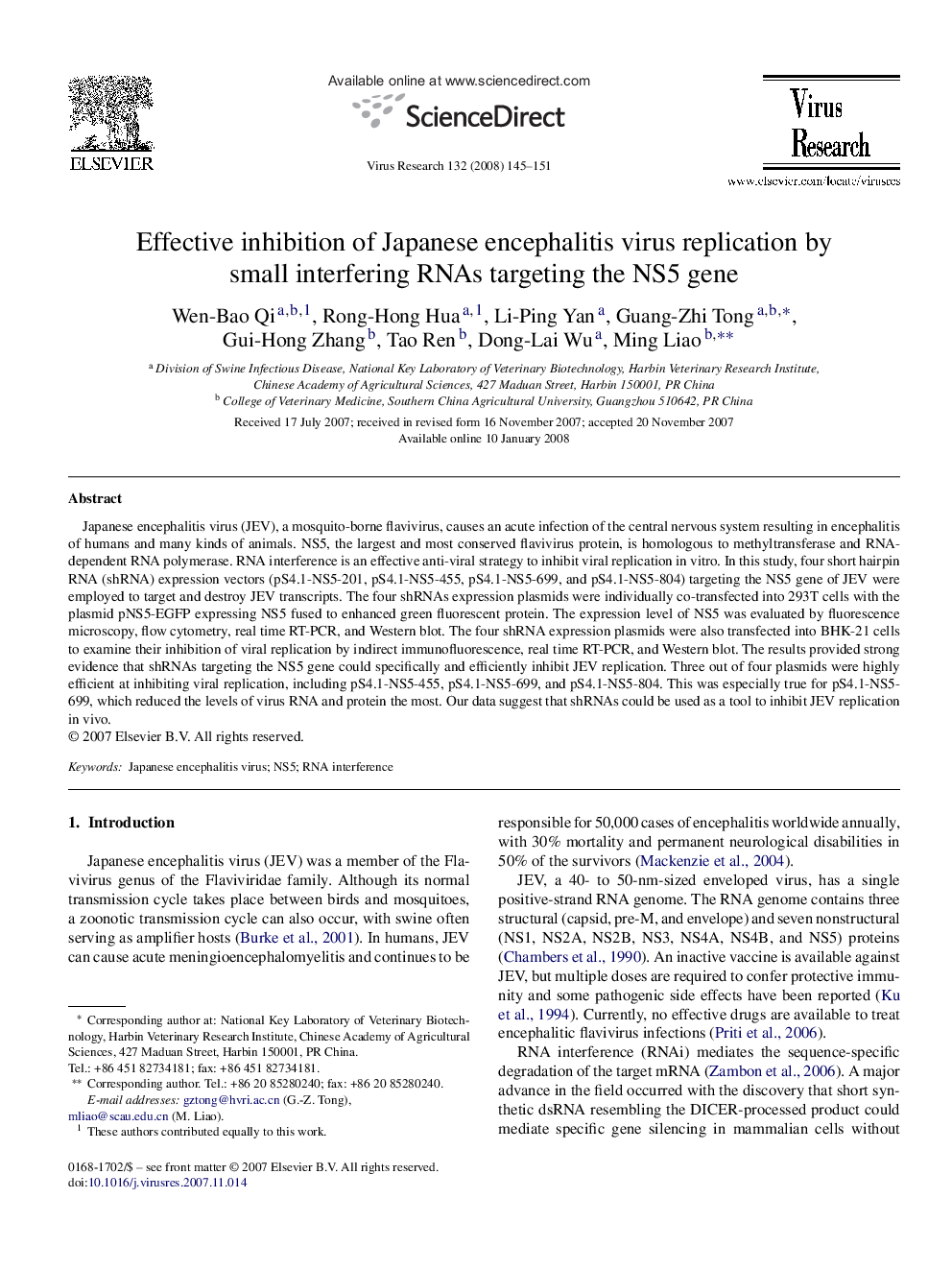| Article ID | Journal | Published Year | Pages | File Type |
|---|---|---|---|---|
| 3430520 | Virus Research | 2008 | 7 Pages |
Japanese encephalitis virus (JEV), a mosquito-borne flavivirus, causes an acute infection of the central nervous system resulting in encephalitis of humans and many kinds of animals. NS5, the largest and most conserved flavivirus protein, is homologous to methyltransferase and RNA-dependent RNA polymerase. RNA interference is an effective anti-viral strategy to inhibit viral replication in vitro. In this study, four short hairpin RNA (shRNA) expression vectors (pS4.1-NS5-201, pS4.1-NS5-455, pS4.1-NS5-699, and pS4.1-NS5-804) targeting the NS5 gene of JEV were employed to target and destroy JEV transcripts. The four shRNAs expression plasmids were individually co-transfected into 293T cells with the plasmid pNS5-EGFP expressing NS5 fused to enhanced green fluorescent protein. The expression level of NS5 was evaluated by fluorescence microscopy, flow cytometry, real time RT-PCR, and Western blot. The four shRNA expression plasmids were also transfected into BHK-21 cells to examine their inhibition of viral replication by indirect immunofluorescence, real time RT-PCR, and Western blot. The results provided strong evidence that shRNAs targeting the NS5 gene could specifically and efficiently inhibit JEV replication. Three out of four plasmids were highly efficient at inhibiting viral replication, including pS4.1-NS5-455, pS4.1-NS5-699, and pS4.1-NS5-804. This was especially true for pS4.1-NS5-699, which reduced the levels of virus RNA and protein the most. Our data suggest that shRNAs could be used as a tool to inhibit JEV replication in vivo.
